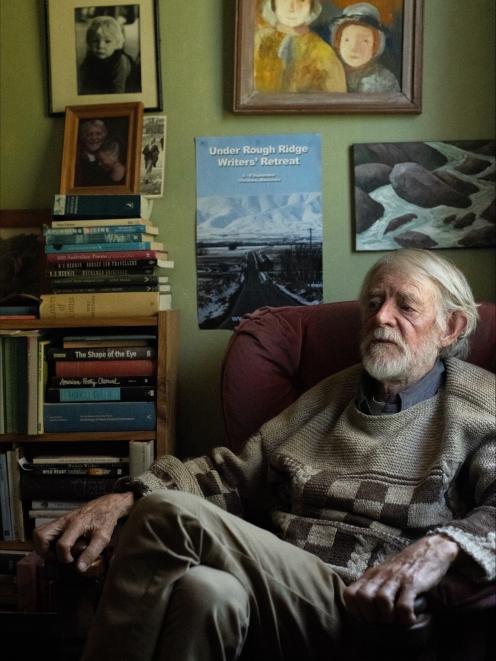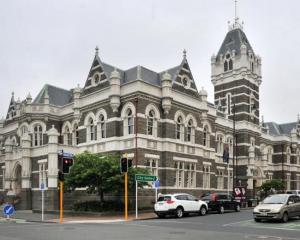
Writer and poet Brian Turner, of Oturehua, was recognised for his role in founding the society and his lifelong advocacy for the protection of the natural environment, especially in Central Otago, where he has lived since 1999.
In his tribute to Mr Turner at the meeting, fellow society member and poet Michael Harlow said he realised "Brian and nature were one".
"I remember a remark I made: ‘an attack against the body of nature is an attack against ourselves’.
"The knowing look on Brian’s face, and with a sad sigh he said ‘and it’s been that way for too ... long’."
Society co-secretary Deborah Robb said the society was set up in 2006, initially to oppose a proposal from Meridian Energy to create a 92sq km wind farm in the Lammermoor Range — creating the largest wind farm in the southern hemisphere.
The Environment Court ruled the site an outstanding landscape of national significance and the wind farm never eventuated, Ms Robb said.
Mr Turner said he liked the mountains and hills of Central Otago, the rivers and streams and wide open spaces.
He settled in Oturehua after moving from the North Island.
"The wide open spaces were where I felt I belonged," he said.
He and Grey Shatkey started the society and there was some resistance.
"Some people felt ‘who the hell are they? A bit of a nerve you two, who do you think you are?’ in part because a considerable number of rurals thought that we shouldn’t be critical of what the farmers and others were doing."
A keen mountaineer, who had conquered most of New Zealand’s peaks including Aoraki/Mt Cook, and fisherman familiar with South Island rivers and streams, he had long had concerns about man’s impact on the environment.
"But you could understand why that was done.
"It was done because the wider population felt the need for meat, for wool and so on. And so did I. All I was trying to say was don’t do any more than is very necessary, and try to preserve sections of the natural world because it was here, guys, before we were," Mr Turner said.
The biggest challenges facing Central Otago’s natural environment now were wilding pines and water.
"I don’t want the rivers and streams to have more taken from them and more of what gets in there to make a mess ... I have over the years had farmers say to me ‘what are we going to do about so and so’, meaning a neighbour, because the farmer was a very keen hunter and fisher."
Courage was needed to protect the environment, Mr Turner said.
"If you are concerned about natural values, you shouldn’t be afraid to draw attention to them and say why."
He was not anti-farming, as he believed many were genuinely concerned about the environment.
The shapes of the mountains, the varying heights and the way the clouds were torn away from them were what he loved about Central Otago.
Preserving the environment he so loved was fundamental to his life and work.
"I’m not a youngster any more so I’m not going to have much time left to do much about it, but seeing I’m going to heaven, I’ll be able to do it there," he said with a chuckle.













